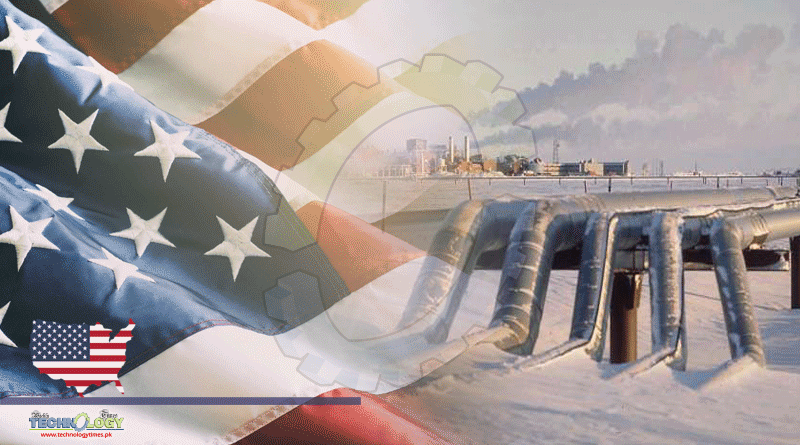Emissions Resulting From Foreign Consumption Of Oil Are Surely A ‘Reasonably Foreseeable’ Indirect Effect Of Drilling At Liberty

The Trump administration’s approval of oil drilling off the northeast coast of Alaska, the first offshore drilling project to be entirely in federal waters, was rejected Monday by a federal appeals court, which said the government failed to assess a potential increase in greenhouse gas emissions or describe any plans to protect endangered polar bears.
The Interior Department granted approval in 2018 to Hilcorp Alaska for plans to extract oil from beneath the Beaufort Sea. The company called it the Liberty project and said it hoped to produce 120 million barrels of oil over 15 to 20 years. The oil would be drilled from a newly constructed nine-acre gravel island, then pumped ashore underwater. Beaufort Bay is home to numerous endangered or threatened species, including six species of whales, three species of seals, sea otters and Pacific walruses, as well as polar bears, but federal officials said none would be threatened by the project.
The Interior Department’s Bureau of Ocean Energy Management also said the project would not increase global warming from greenhouse gases, because rejecting it would reduce oil supplies and encourage drilling elsewhere. But in a suit by conservation groups, the Ninth U.S. Circuit Court of Appeals in San Francisco said Monday the government’s explanations were unconvincing.
The project would increase global oil supplies and thus reduce prices, Judge Richard Paez said in the 3-0 ruling ordering officials to take a new look at the plans. “Once prices drop, foreign consumers will buy and consume more oil. … Emissions resulting from the foreign consumption of oil are surely a ‘reasonably foreseeable’ indirect effect of drilling at Liberty,” an effect that federal officials ignored, he said.
In the government’s assessment of potential environmental effects, the Fish and Wildlife Service said polar bears, a threatened species, lived in the area of the drilling project. The agency said the project was not likely to threaten their existence or harm their habitat, but failed to say what it would do to protect them, the court said. The government offered only “noncommittal assurances” that were “too vague to enforce,” Paez said. He also said the assessment did not mention other potential harm to polar bears, short of extinction, or say what would be done to prevent it.
The ruling is “a huge victory for polar bears and our climate,” said attorney Kristen Monsell of the Center for Biological Diversity, one of the groups challenging the Trump administration’s approval. “This project was a disaster waiting to happen.” “In the face of a worsening climate crisis, the federal government should not be in the business of approving irresponsible offshore oil development in the Arctic,” said attorney Jeremy Lieb of Earthjustice. “The world cannot afford to develop new oil prospects anywhere, but especially in the Arctic where warming is already taking such a significant toll.” Lawyers for the administration and Hilcorp Alaska did not immediately respond to requests for comment. The company could appeal the ruling even if the incoming Biden administration changes the government’s position in the case.
This news was originally published at SF Chronicle
